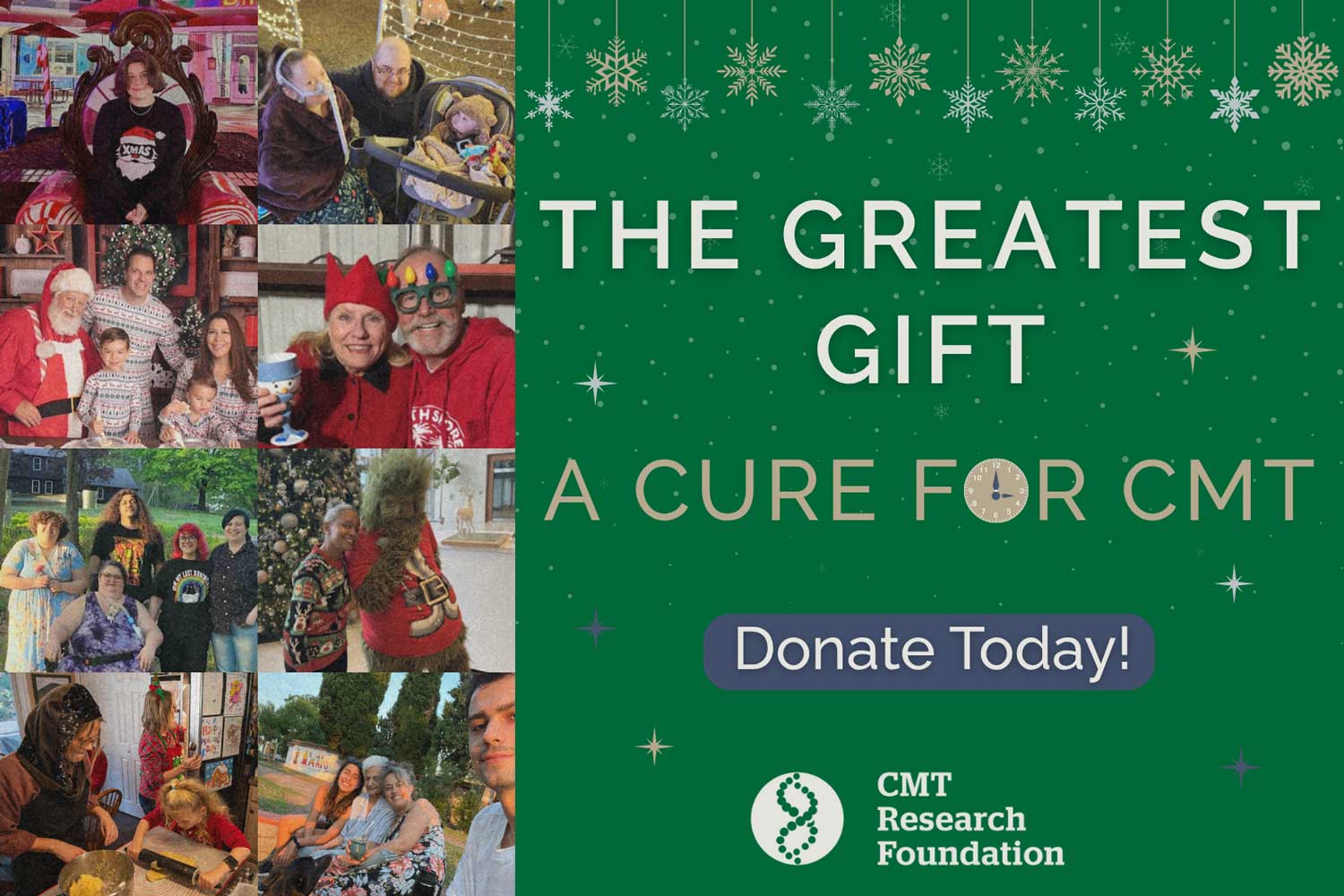Gene Therapies for CMT

Gene therapies are a means to treat disease by modifying the genetic machinery of cells in the body. The goal is to target the underlying genetic cause of disease, which can be accomplished via repair of a genetic defect or replacement of missing or defective genes with healthy, fully functional ones. This in turn enables the normal expression and function of critical proteins.
There are a number of different types of gene therapy. Some of those under development right now include:
- Gene Editing is a precise method of targeting a gene mutation by inserting, removing, or replacing specific pieces of DNA within the faulty gene itself.
- Gene Knockdown, or the reduction of gene expression resulting in reduced protein production, can be achieved during the protein manufacturing process during either transcription or translation via a strategy known as RNA interference (RNAi).
- Gene Replacement is a technique in which the addition of a new, working copy of a gene into target cells serves as a healthy replacement for a missing or mutated gene. The new gene is manufactured in the laboratory and transported to the nucleus of targeted cells, where its code can be read and its instructions for protein production implemented. This type of therapy may be used in loss-of-function disorders caused by a missing or defective gene and the subsequent deficiency or insufficiency of that gene’s normal product. The introduction of the healthy gene is intended to result in production of a sufficient amount of properly functioning protein.
Transportation of genetic material to target cells is an incredibly important part of the gene therapy approach. Small viruses often serve as vectors, or transport vehicles, capable of delivering genetic material “cargo” to its destination either into a cell’s existing DNA or into its nucleus. Many scientists currently are working with adeno-associated viral (AAV) vectors, which are able to penetrate the cell’s nucleus and aren’t known to cause diseases in people. However, their small size limits the amount of genetic material they can carry.
Risks are inherent with any treatment, and gene therapy is no exception. However, it likely won’t be possible to “turn off” gene therapy, which is why it’s critical to study methods of administration, the genetic material to be delivered or altered, a patient’s disease stage and other aspects of his or her genetic makeup.
CMT Research Foundation is leading the charge to ensure safe and effective therapies for all forms of CMT make it to the market to help those living with CMT today. We are working every day to support the families, the foundations, the academics, the scientists, the biotechs and the pharma companies who share our goal and who are working to make it happen.
Related News & Research
Dr. James Dahlman Explores New Way to Deliver CMT Gene Therapies to The Peripheral Nerves
Gene therapy is a promising approach for possible treatments and cures for Charcot-Marie-Tooth disease. However, a key challenge is how to deliver these therapies effectively to the cells of the peripheral nervous system. A potential solution to this was explored by...
CMT Research Foundation Partners to Advance Study of CMT1J by Dr. Stephan Zuchner
The CMT Research Foundation, a non-profit focused solely on delivering treatments and cures for Charcot-Marie-Tooth disease (CMT), has partnered with the 1J Foundation, a 501(c)(3) organization dedicated to finding a cure for patients with 1J, a newly identified...
Project Update: Nanite Looks to Advance Polymer-Based Encapsulation for CMT1A
CMT 1A results from the duplication of the myelin protein 22 gene (PMP22) in Schwann cells. This causes excessive production of the PMP22 protein which disrupts the myelination process of peripheral nerves and ultimately results in axonal loss and muscle wasting over...
Cisco’s Santo Caivano Joins CMT Research Foundation Board of Directors
CMT Research Foundation (CMTRF), a patient-led, non-profit focused on delivering treatments and cures for Charcot-Marie-Tooth (CMT) disease, today announced that Santo Caivano, Director, Customer Engagements of Cisco’s CAP (Critical Accounts Program) Americas team,...
CMT Research Update/Armatus Bio
Armatus Bio has partnered with Andelyn Biosciences, Inc., a cell and gene therapy Contract Development and Manufacturing Organization to accelerate manufacturing of an Armatus gene therapy treatment for Charcot-Marie-Tooth Type 1A. The goal is to maximize program...
Kayleena Speakman Joins The CMT Research Foundation as Communications Manager
Kayleena Speakman has joined The CMT Research Foundation, a patient-led, non-profit focused on delivering treatments and cures for CMT as Communications Manager responsible for emails, blogs, social media posts and opinion pieces for the CMT community, donors,...
An Extraordinary Year and the Road Ahead
As we begin 2024, I want to take a look back and celebrate the extraordinary year we had at the CMT Research Foundation. Since 2018, CMTRF has had an outsized impact on inspiring drug hunters to work on developing therapeutics for CMT and establishing itself as a key...
Updates on CMT Research
There have been a number of interesting developments in CMT research in the past few weeks. Here are three: Update 1: Pharnext recently announced topline results of its pivotal phase 3 (PREMIER trial) of PXT3003, its drug candidate for Charcot-Marie-Tooth 1A (CMT1A)...
The Importance of Fundraising
By: Miron Hall Because CMT is a rare disease, it often receives less attention and funding than more common medical conditions. Without adequate resources, researchers struggle to develop effective treatments and ultimately find a cure. This is where fundraising plays...
Dr. Grace Pavlath Joins CMT Research Foundation’s Research Advisory Committee
ATLANTA (November 14, 2023) The CMT Research Foundation (CMTRF), a patient-led, non-profit focused on delivering treatments and cures for Charcot-Marie-Tooth (CMT) disease*, today announced that Dr. Grace Pavlath has joined its newly formed Research Advisory Committee...

